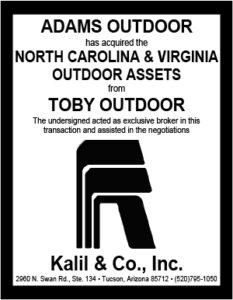
I’ve written a couple times recently in Billboard Insider on the new controversial Texas law, HB 2127, which has been called by its supporters the “Texas Regulatory Consistency Act” and its detractors the “Texas Death Star Bill.” In general, the bill, which becomes effective on September 1, 2023, broadly preempts and invalidates local ordinances that are “inconsistent” with State law. This potentially includes municipal sign codes.
On July 3rd, the City of Houston sued the State to hold the new law unconstitutional. The City’s 51 page petition filed in Travis County District Court, and Mayor Sylvester Turner’s press release on the lawsuit detail the myriad legal complaints under the US and Texas Constitutions and statutes, and the dire consequences anticipated from application of the law. The Mayor summed up the challenge quite dramatically: “The Texas Constitution expressly champions the local control and innovation that has been key to the tremendous economic dynamism in cities like Houston. HB 2127 reverses over 100 years of Texas constitutional law without amending the Constitution. Because Texas has long had the means to preempt local laws that conflict with State law, HB 2127 is unnecessary, dismantling the ability to govern at the level closest to the people and therefore punishing all Texas residents. Houston will fight so its residents retain their constitutional rights and have immediate local recourse to government.”
The City concedes in its petition the bill’s provision that “the governing body of a municipality may adopt, enforce, or maintain an ordinance or rule only if [it] is consistent with the laws of this State,” would affect all Texas local law, whether or not it is specifically referenced in HB 2127, presumably therefore including billboard regulations. Moreover, the petition complains this provision shifts “the burden of proof to cities to show consistency with State law,” and “make it very difficult, if not impossible, for cities to show consistency.”
While not expressly mentioning the State’s billboard regulations under the Highway Beautification Act, Chapter 391 of the Texas Transportation Code and the administrative rules promulgated thereunder in 43 Texas Administrative Code Sections 21.141 et seq, Houston’s lawsuit implies that any sign regulations that are inconsistent with these State laws will be preempted and invalidated. For example, assuming an operator secured a permit from TxDOT for a new or relocated billboard, or was entitled under the TxDOT regulations to convert his static billboard to digital, and the only thing preventing him from proceeding with the billboard erection or conversion was the prohibitory ordinance of a Texas municipality, it follows the operator could make demands under HB 2127 to declare the city’s sign code inconsistent, preempted, and invalid. Given the breadth and burden of proof under the new law, as conceded in Houston’s lawsuit, many small cities-but not Houston, apparently-might be more inclined to acquiesce than fight such demands.
To receive a free morning newsletter with each day’s Billboard insider articles email info@billboardinsider.com with the word “Subscribe” in the title. Our newsletter is free and we don’t sell our subscriber list.
Paid Advertisement
















